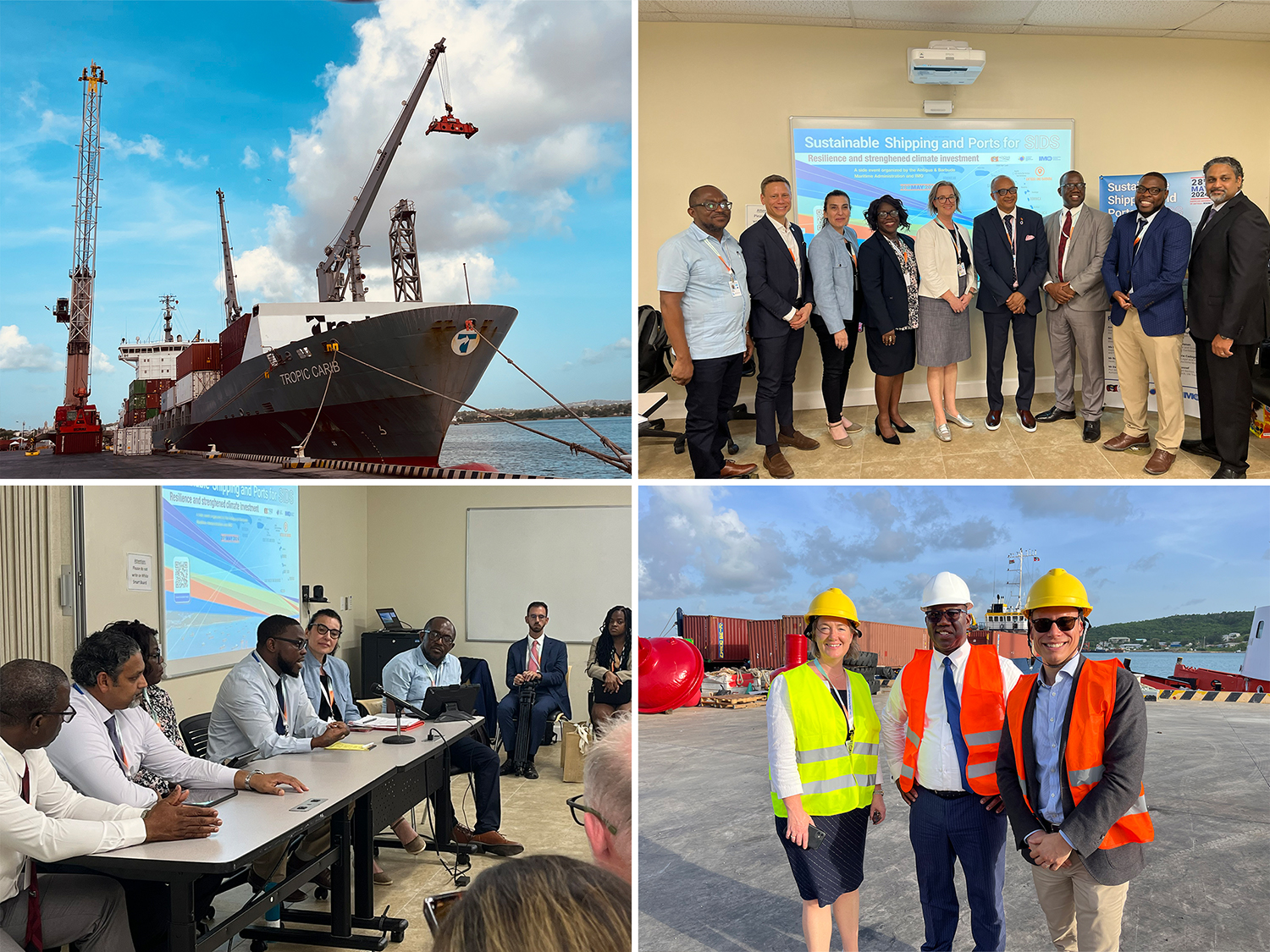Small Island Developing States (SIDS) are heavily reliant on shipping due to their small size and remoteness, but high transportation and connectivity costs could deepen as the maritime industry seeks to decarbonize.
To discuss these issues and potential solutions, IMO and the Antigua and Barbuda Department of Marine Services and Merchant Shipping (ADOMS) organized a side event (28 May) in the margins of the 4th International Conference on Small Island Developing States (UN 4th SIDS Conference), held in Antigua and Barbuda from 27 to 30 May.
The side-event on 'Sustainable shipping and ports for SIDS: Resilience and strengthened climate investment' explored how SIDS can tap into the opportunities that may arise from the energy transition, while mitigating the potential costs.
Ms. Louise Proctor, Deputy-Director of IMO's Technical Cooperation and Implementation Division said: "It is our collective responsibility to not let SIDS pay the price for global supply chain disruptions or ambitious decarbonization measures, since their contribution to global greenhouse gas emissions has been so insignificant."
To support this, IMO is developing partnerships with governments and industry to facilitate resource mobilization, and with financial institutions to catalyze financial flows to the maritime sector.
Long-term projects such as IMO's GreenVoyage2050 and GHG-SMART initiatives are advancing inclusive innovation through pilots in developing countries, with a focus on technology deployment and green maritime infrastructure.
During the event, Mr. Roel Hoenders, IMO's Head of Climate Action and Clean Air, presented the progress being made under the 2023 IMO Strategy on Reduction of GHG Emissions from Ships. As part of the strategy, a comprehensive impact assessment is being carried out to look at proposed GHG reduction measures and how they may affect States, particularly SIDS and LDCs.
National port authorities in the Caribbean and partner institutions highlighted ongoing projects as well as best practices and lessons learnt to support a just and equitable energy transition for SIDS.
